The Fall of Assad: How Rebels Changed Syria and What Awaits the Country
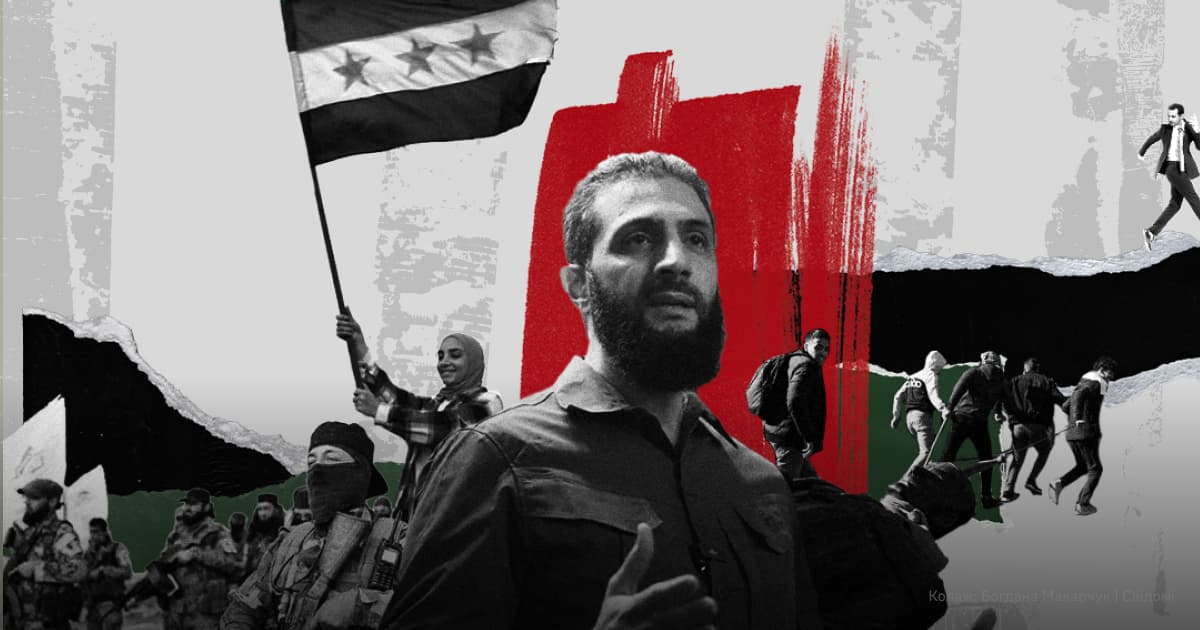
"The goal of the revolution remains the overthrow of this regime. It is our right to use all available means to achieve this goal," Abu Muhammad al-Julani, the leader of the Syrian rebels opposing Bashar al-Assad's regime, told CNN on December 6. Just two days later, on December 8, Assad's regime finally collapsed. Rebels entered the Syrian capital, Damascus, and the dictator fled to Russia.
Svidomi explores rebel leader Abu Muhammad al-Julani and the organisation Hay'at Tahrir al-Sham (HTS), which succeeded in overthrowing Bashar al-Assad's dictatorial regime in Syria.
Rebel or Jihadist: Who is Abu Muhammad al-Julani?
Abu Muhammad al-Julani is not his real name. The man who managed to overthrow the Assad regime is actually Ahmed al-Shaar. He comes from a family of refugees from the Golan Heights — a region of Syria occupied by Israel during the Six-Day War in the 1960s. Ahmed al-Shaar was born in Saudi Arabia to a family of teachers and engineers, representing the "Arab middle class". He was unremarkable at school and quiet at university.
Nevertheless, he managed to lead the rebellion into its final phase. In 2003, the young al-Shaar left his life behind and went to Iraq, where he joined al-Qaeda to wage "war" against the Americans. He was captured by US forces in 2006.
In 2011, Ahmed al-Shaar was released from an American prison and headed to Syria with a small group of al-Qaeda operatives. His mission was to establish a branch of the group in Syria, leading the US to designate him as a terrorist in 2012.
In 2015, al-Julani gave his first interview to Al Jazeera, introducing himself under the pseudonym Abu Muhammad al-Julani. During the interview, he outlined the primary goals of the Nusra Front, then a Syrian branch of al-Qaeda: to overthrow the dictatorship of Bashar al-Assad.
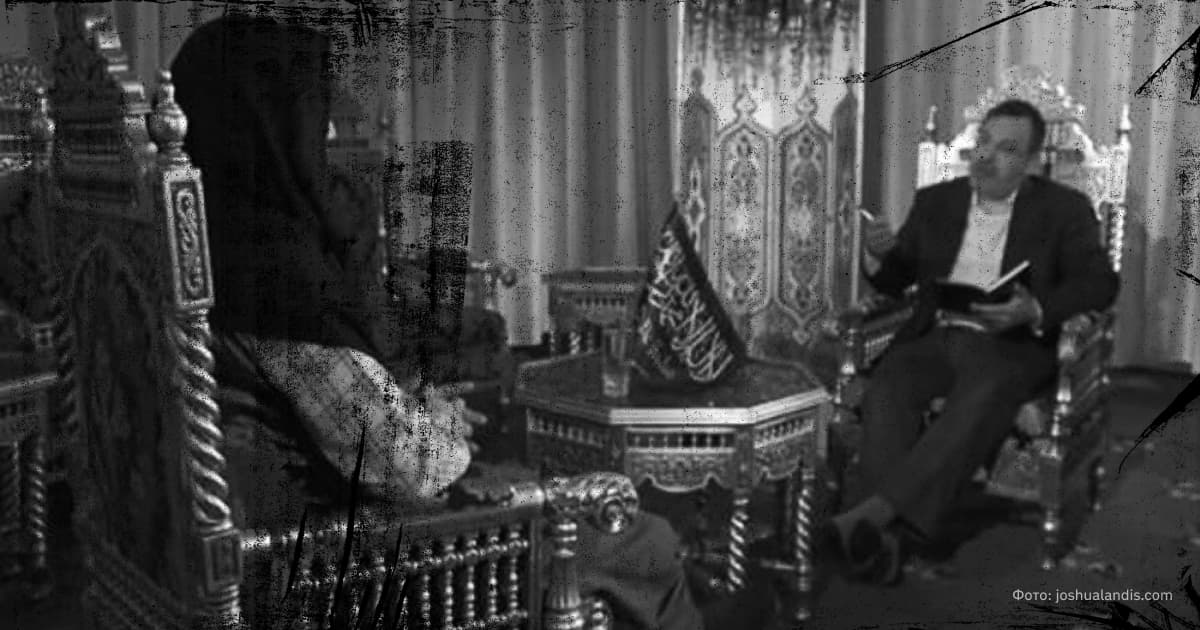
Have Nusra Front fighters carried out terrorist attacks in Syria to achieve their goals? Yes. They orchestrated bombings in Damascus and Aleppo in 2012 and 2017. In Aleppo in 2017, more than 80 children were killed in an attack on a convoy. These are just two examples of the many attacks carried out by the militants.
In 2017, al-Julani's group merged with several other armed groups to form Hayat Tahrir al-Sham (HTS), or the Organisation for the Liberation of the Levant. Their first major achievement was the capture of Idlib province in northwestern Syria, near the Turkish border, in 2018. But instead of advancing further, the rebels paused and organised the province's administration. Idlib became a training ground for state administration under al-Julani.
Türkiye engaged with the HTS, opening trade routes to the province and providing resources such as electricity. The province experienced economic growth, rebuilt its infrastructure and even developed.
In 2024, however, protests began against al-Julani's administration. Residents demanded lower taxes, the release of government critics from prison, and an end to reported mistreatment of detainees. Surprisingly, al-Julani conceded to the protesters, releasing over 300 prisoners and announcing local government elections in the province.
In November 2024, HTS launched its final push to overthrow the government of Bashar al-Assad. Abu Muhammad al-Julani emerged as the rebellion's leader, instructing his fighters to "avoid frightening children". The HTS administration in Idlib was also preparing for the takeover. The Ministry of Development and Humanitarian Affairs reported the delivery of 65,000 loaves of bread to Syrians in areas liberated from the Assad regime.
Before the rebels took Damascus, al-Julani gave an interview to CNN outlining his vision for Syria's future. He spoke of building strong state institutions and making Syria "open to all", alluding to the inclusion of different religious groups. Aleppo, for example, is home to a Christian community, and the rebels have been explicitly told not to harm them.
Abu Muhammad al-Julani is characterised by his middle-class background and higher education. When he returned to Syria in 2011 to establish an al-Qaeda branch, many saw him as an opportunist exploiting the revolution for personal gain. He cemented this perception by founding HTS in 2017. Over time, however, al-Julani became more pragmatic in his rhetoric and actions, cutting ties with al-Qaeda and refusing to ally with ISIS, signalling his ideological stance.
Today, al-Julani seeks to reintegrate Syria into the globalised world. Whether he will succeed remains to be seen.
How Hayat Tahrir al-Sham toppled Bashar al-Assad
Hayat Tahrir al-Sham (HTS) emerged in 2017 as a conservative armed group with Islamic ideological roots. Its primary goal was to overthrow the regime of Bashar al-Assad in Syria and establish complete control over the country. When the group was formed, its leaders declared a "popular jihad to achieve the goals of the Syrian revolution". The US has designated HTS as a terrorist organisation.
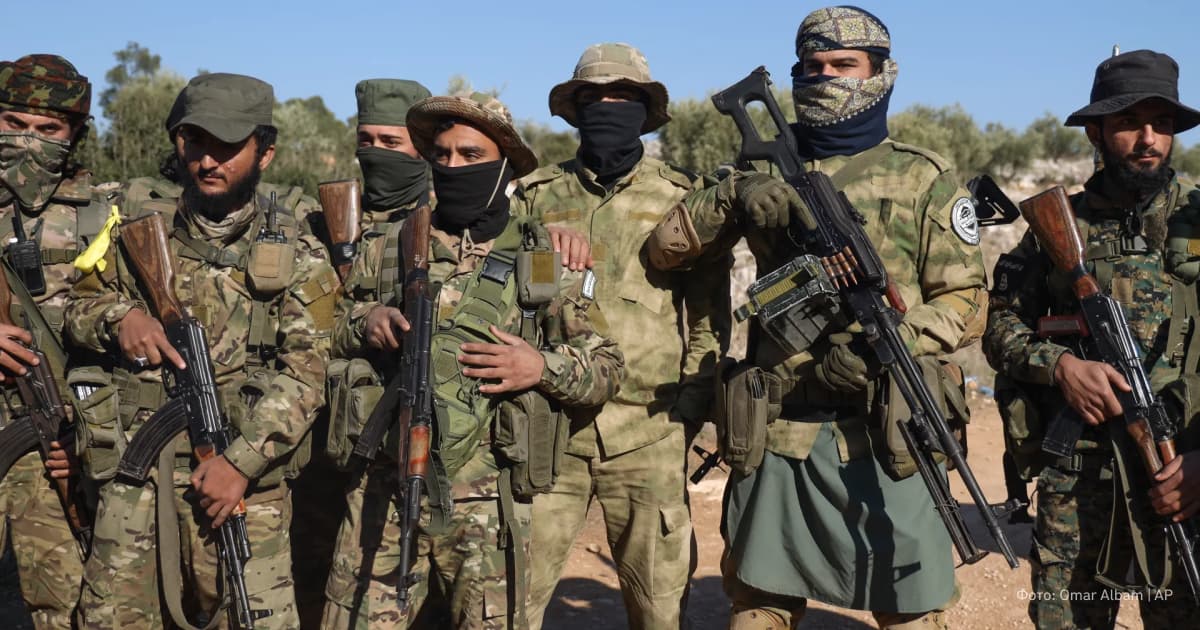
In 2018, after taking control of Idlib province, HTS established a civilian administration. This administration allowed international organisations to engage with the province's residents, involving them in educational and humanitarian initiatives. For example, UNICEF worked with the local government to develop a school curriculum in accordance with the administration's legal framework.
After taking complete control of Idlib, the HTS allowed Christians in the province to reopen their churches in 2022 — a practice previously banned under the Assad regime. Al-Julani personally assured Christian residents that their rights would be respected and that HTS fighters would not harm them. This decision was seen as a "turn towards moderate politics".
However, in 2019, Human Rights Watch reported that HTS fighters were imposing authoritarian control, torturing locals, persecuting non-Sunni Muslims and discriminating against women.
Despite these claims, HTS spent years preparing for Assad's fall. The administration of Idlib provided the group with the opportunity to build civilian institutions in line with the 'state structures' that al-Julani mentioned in his CNN interview. According to the Washington Institute, this institutional development helped HTS to consolidate its separate battles into a cohesive project.
One of these battles was HTS's fight against ISIS in Idlib province. By 2023, HTS had suppressed active ISIS and al-Qaeda cells in northwest Syria. A ceasefire agreement between Russia and Türkiye in 2020 allowed HTS to train for the “Syrian revolution”. The group also strengthened its organisation against infiltration by more radical militants and maintained internal control.
In 2021, al-Julani told PBS that HTS's links to al-Qaeda were "a thing of the past" and that the group's sole aim was to overthrow the Assad regime. He also admitted to carrying out terrorist attacks in Syrian cities under regime control.
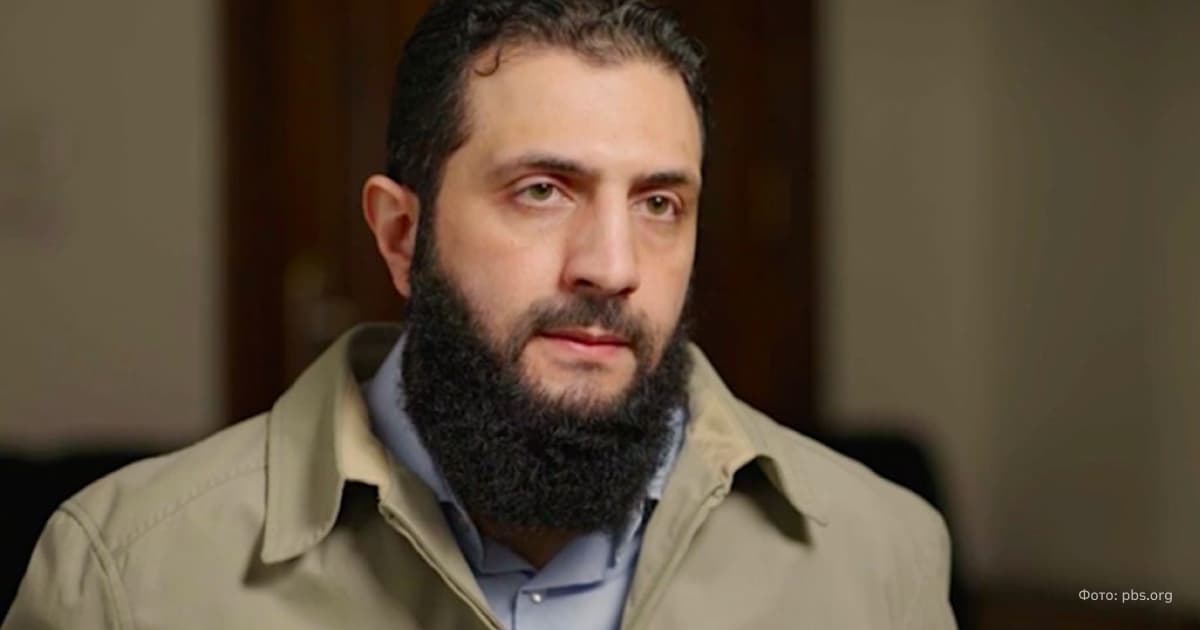
The HTS, which had already established itself in the region and won the support of Türkiye, thus demonstrated its "moderate" policy to other countries on which both its position and Syria's sanctioned economy depended.
Russia's war against Ukraine has affected the Kremlin's support for Bashar al-Assad. Russia has devoted increasing resources to its invasion of Ukraine. Meanwhile, Bashar al-Assad's government has become increasingly mired in corruption and black-market drug trafficking. Even Assad's military personnel have become drug dealers. At the same time, Russia has reduced its presence in the country. Although the Russian air force attacked a refugee camp in Idlib province in 2023, such attacks have become increasingly rare.
According to KyivPost, the Defence Intelligence of Ukraine(GUR) was involved in training HTS rebels. In September 2024, the GUR attacked a Russian military base on the outskirts of Aleppo, most likely using a combat drone. Several similar attacks on Russian bases were reported in the summer and autumn of 2024. Ukraine officially denied any involvement with the Syrian rebels.
Both independently and with external support, the HTS rebels launched an offensive in late November, capturing Aleppo, Hama and the Syrian capital, Damascus. The offensive had been planned for a year. HTS leaders themselves cited "organisation" and "coordination" with other rebels in southern Syria as key factors in their success. HTS also used drones during the offensive, underlining the importance of such technology in modern warfare.
The 2020 ceasefire became the reason for Bashar al-Assad's defeat. He believed that the uprising would not spread beyond Idlib province and that HTS would not launch operations against his regime. Now, however, Bashar al-Assad has fled to Moscow and HTS, led by Abu Muhammad al-Julani, is establishing a new order in Syria.
What comes next for Syria?
On December 8, after the fall of Assad's regime, Israel sent its troops into Syria. They crossed the Golan Heights border, also known as the "Purple Line", a buffer zone between the countries that has been monitored by UN peacekeepers since 1974 after the Yom Kippur War. Israeli Prime Minister Benjamin Netanyahu said the 1974 border agreement with Syria was no longer valid after the fall of Assad's regime. To "prevent threats", he ordered the Israel Defense Forces to "temporarily take control of the Purple Line until an agreement is reached with the new Syrian government."
But Israel has not stopped there. The Israeli air force carried out strikes on the port of Latakia, Qamishli airport, an alleged chemical weapons production centre in Barzeh in northern Syria, the capital Damascus and other locations. Between December 8 and 10, Israeli forces carried out more than 200 airstrikes on Syria.
Israel also continued its ground campaign. The Israeli army occupied the province of Quneitra near the Golan Heights and advanced further into the province of Daraa and the town of Qatana, 26 kilometres from Damascus. Israeli Defence Minister Israel Katz said that the country was allegedly trying to "create a sterile defence zone" in southern Syria to prevent the establishment and organisation of terrorist activities there. On December 10, Israel announced that it had "destroyed the Syrian navy.”
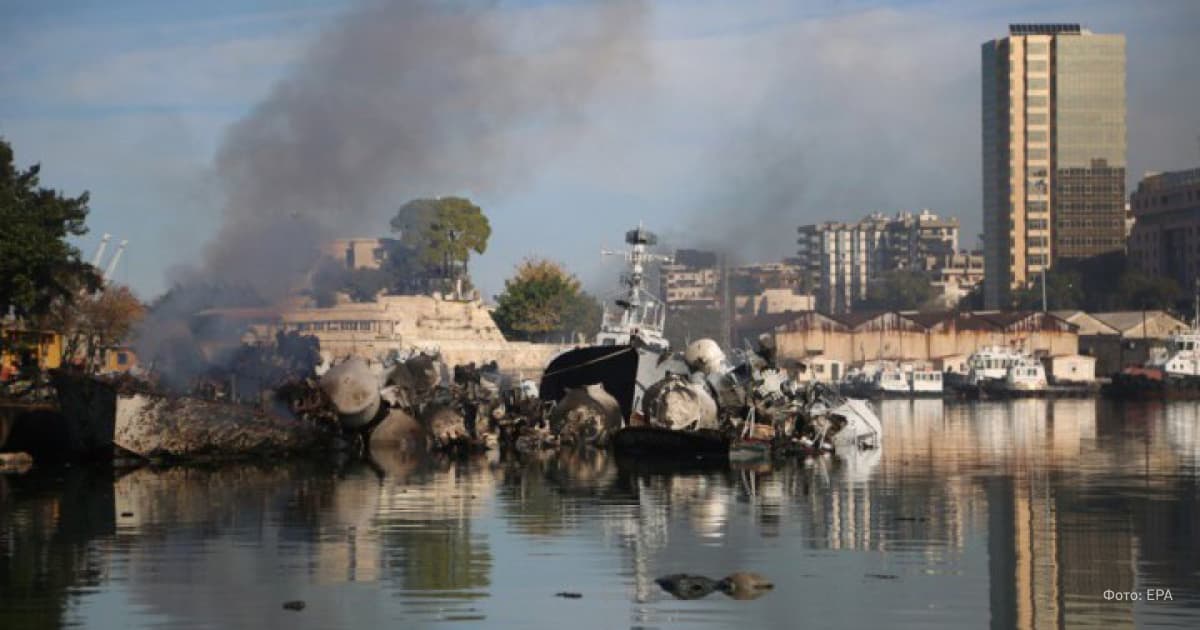
The United States backed Israel's actions. US Secretary of State Antony Blinken said that "the stated goal of these Israeli actions is to ensure that military equipment abandoned by the Syrian army does not fall into the wrong hands". Meanwhile, State Department spokesman Matthew Miller described the Israeli incursion as "a temporary measure taken in response to Syrian military actions in the area.”
France has condemned Israel's invasion of Syria. The country's foreign ministry called on Israel to withdraw its troops and respect the borders established by international agreements in 1974.
The Arab League, an organisation of 22 countries in the Middle East and North Africa, condemned Israel's military operation, calling it "an attempt to extend the occupation of the Golan Heights and to unilaterally abrogate the 1974 agreement."
Meanwhile, a transfer of power took place in Syria. The Assad regime handed over power to a new transitional government led by Muhammad al-Bashir. He announced that the transitional government would rule the country until March 1, 2025.
The US, with the help of its Middle Eastern allies and Türkiye, has already opened communications with the rebels and the interim government. President Joe Biden's administration has called on the new government to eliminate chemical weapons, govern the country effectively and "protect minorities and women's rights."
The rebel leadership has already announced a ban on forcing women to wear the hijab. They said: "Women must decide for themselves what clothes to wear. They also banned the persecution of media workers, including those from Syrian state television and radio, previously subservient to Assad's regime.
"Any threats against these individuals are prohibited. We are here to build a new Syria where everyone can live without exception," the rebels said in a statement.
The UK says it is "too early" to remove HTS from its list of terrorist organisations. Much will, therefore, depend on the US's position on the matter or on the new Syrian government's efforts to establish cooperation with other countries.
Russia, meanwhile, has also established contacts with the new Syrian government and even tried to negotiate the retention of its military bases in Syria. However, on December 13, FT analysed satellite imagery and reported that Russia was preparing to withdraw equipment from its bases, sending military aircraft to Syria to do so and moving its ships out of the ports.
The new Syrian government and the rebel leadership have declared their intention to build a democratic and peaceful state. However, economic sanctions imposed on Syria by countries such as the US and the EU, as well as hostility from neighbouring countries such as Israel, are hampering this process. Moreover, the extent of the rebels' dependence on Türkiye and Türkiye's willingness to support Syria's regional empowerment remains unclear. Syria's future, therefore, depends on many factors and agreements between countries and the new government. Only time will tell what kind of leadership will emerge and what the future holds. The exposure of the crimes committed by Bashar al-Assad's regime, including torture chambers and prisons, is a positive step but says little about what lies ahead.


